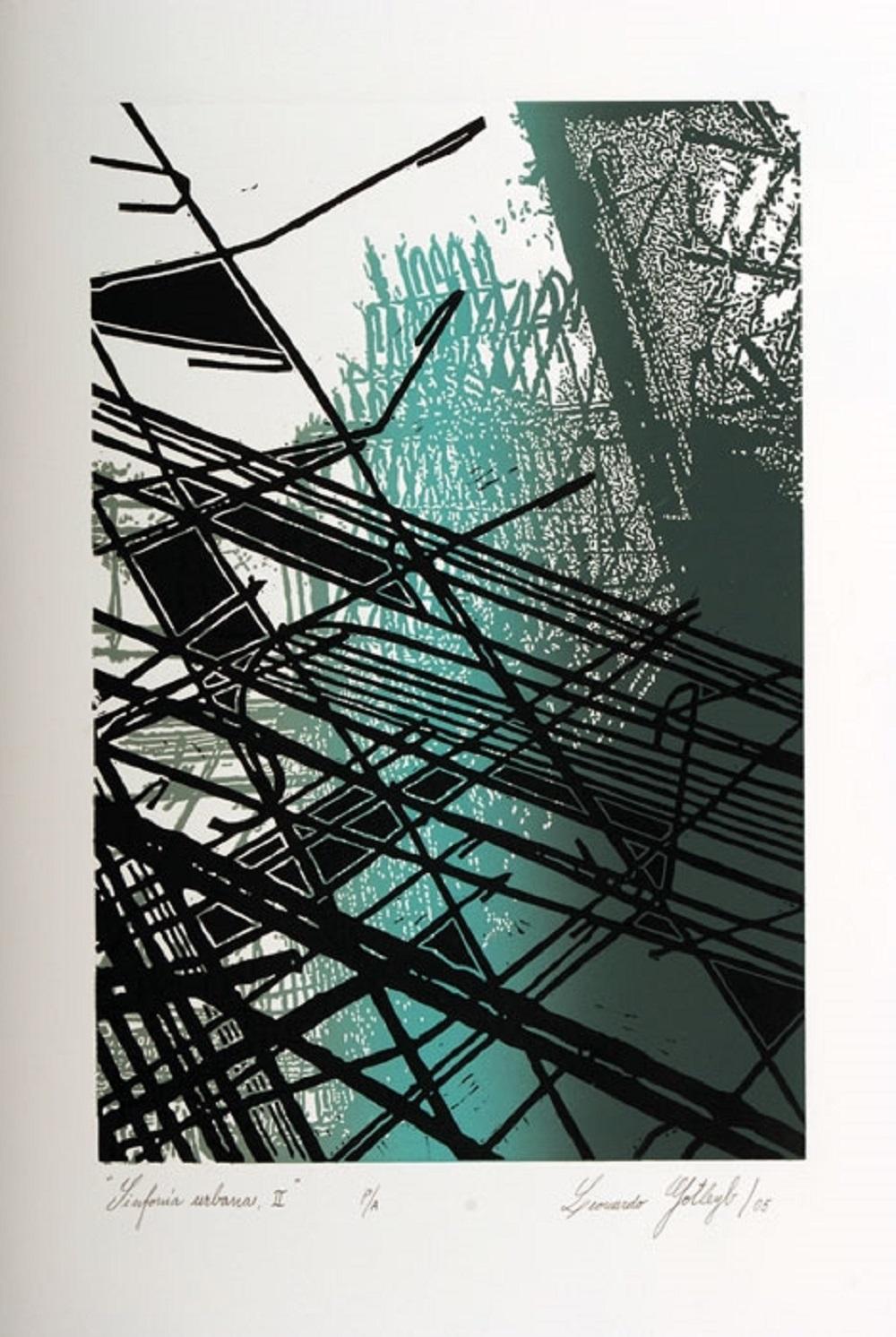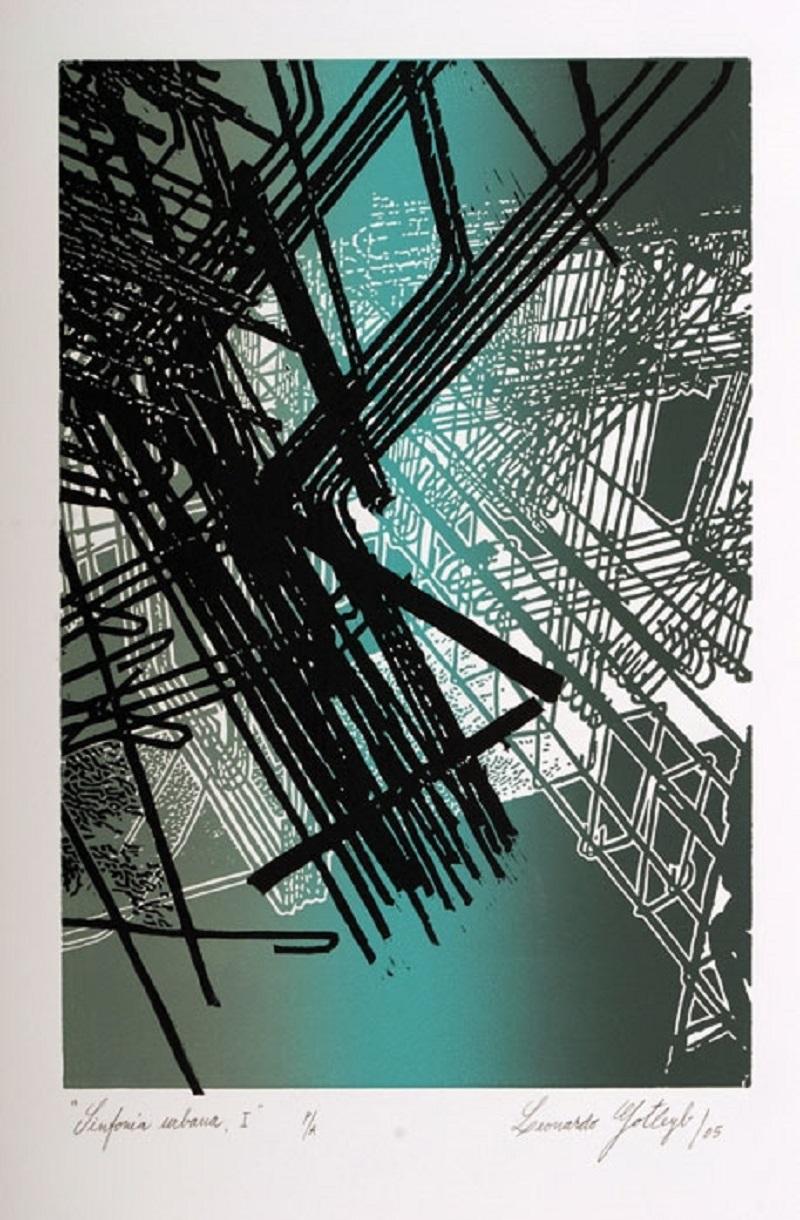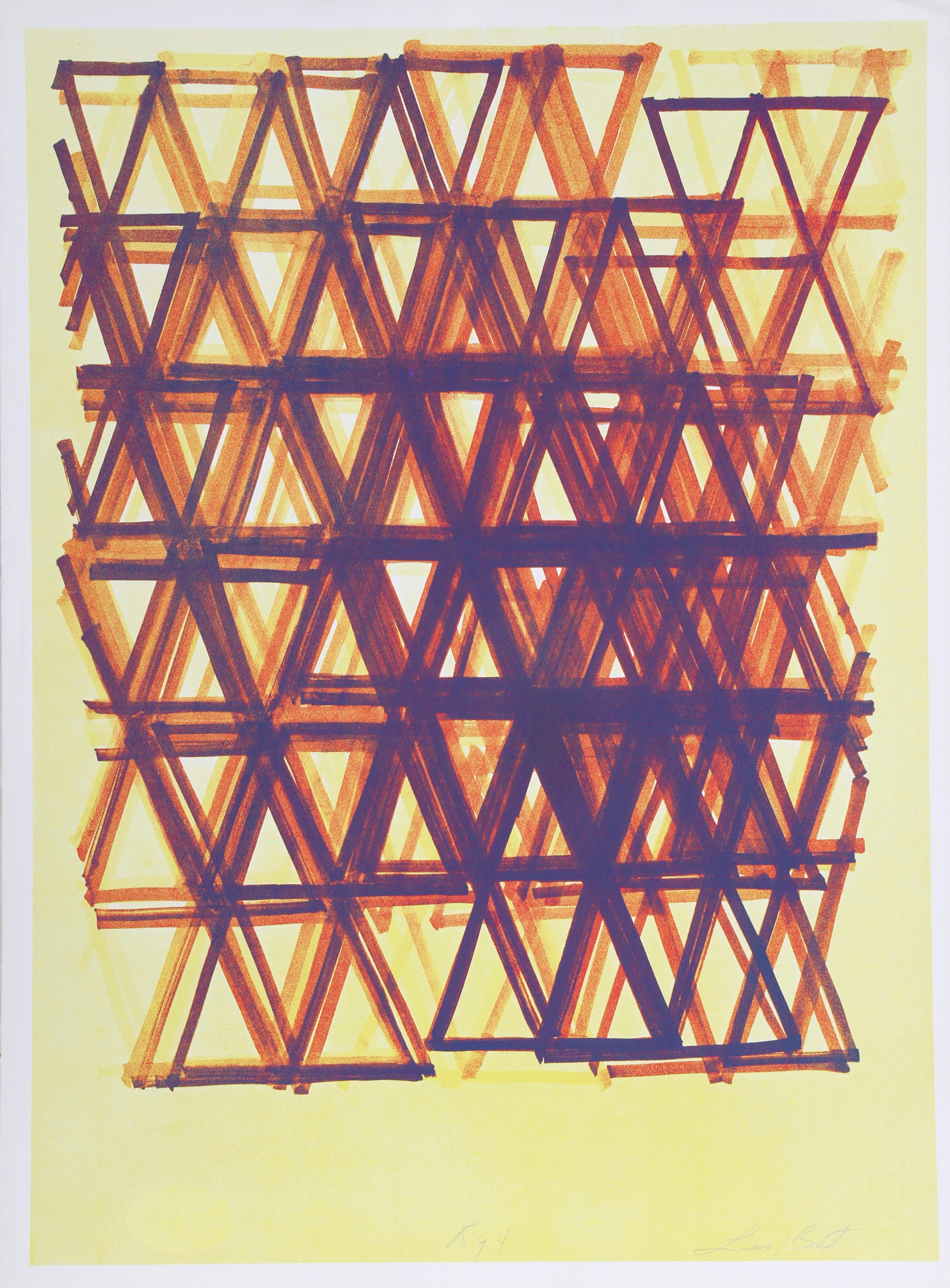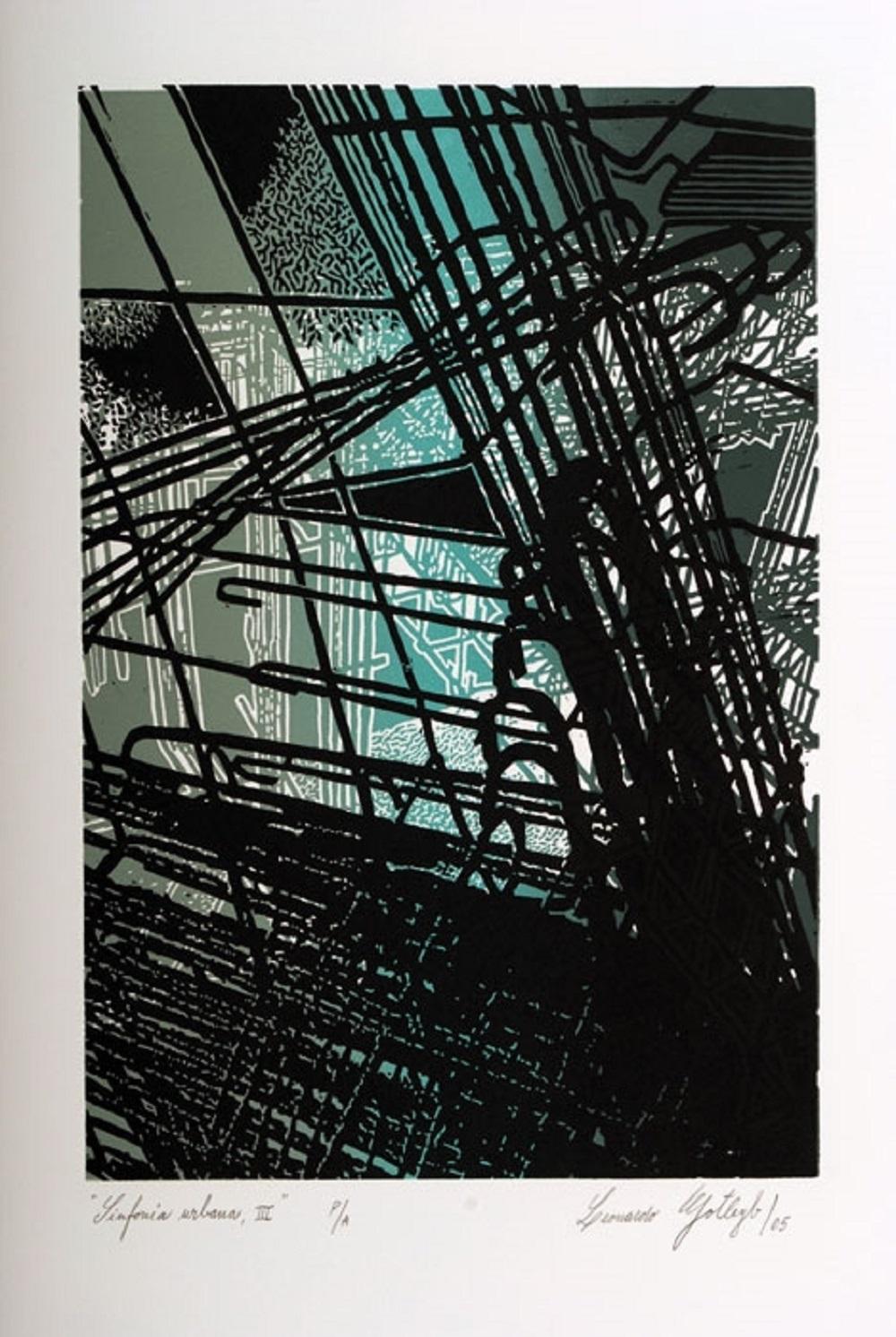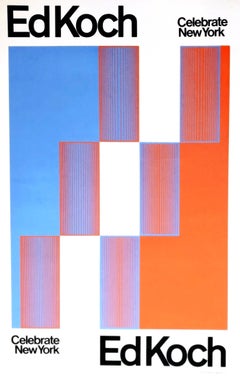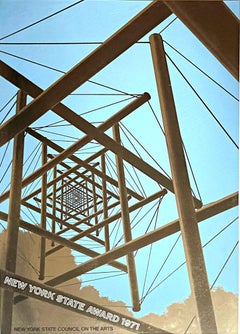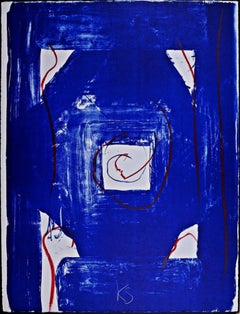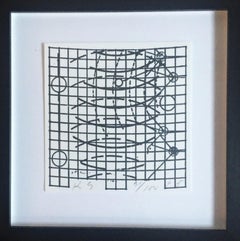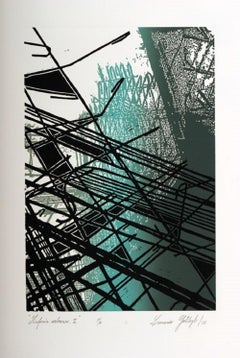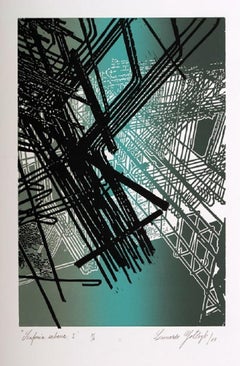Items Similar to Screenprint for the Relocation Project, Serpentine Gallery, London. UK Signed/N
Want more images or videos?
Request additional images or videos from the seller
1 of 9
Tadashi KawamataScreenprint for the Relocation Project, Serpentine Gallery, London. UK Signed/N1997
1997
$2,800
£2,169.75
€2,462.22
CA$4,013.12
A$4,407.20
CHF 2,268.66
MX$52,733.43
NOK 28,885.01
SEK 27,069.56
DKK 18,388.88
About the Item
Tadashi Kawamata
Untitled for the Relocation Project, Serpentine Gallery, London, 1997
Screenprint on wove paper
Pencil signed, dated '97 and numbered 169/180.
34 1/2 × 24 3/4 inches
Unframed
Pencil signed, dated '97 and numbered 169/180.
This limited edition screenprint was conceived by Tadashi Kawamata and published on the occasion of the Relocation Project on the Serpentine Gallery Lawn, London. It is accompanied by a hand signed COA from the Director of the Serpentine Gallery..
Provenance: Acquired directly from the Serpentine before the edition sold out.
Tadashi Kawamata Biography
Tadashi Kawamata is an artist who transforms our environment, he works in the midst of demolition and construction observing and highlighting socio-economic links between architectural construction and destruction. His site specific projects – made from reclaimed materials - have taken place all over the world and range from intimate transformations of a single house or apartment to the whole scale reconfiguration of towns.
Utillizing discarded materials; wooden pallets, crates, corrugated tin and cardboard, Kawamata sets about building new and unconventional structures; a bridge between an apartment block and a museum, a wooden walkway that leads from a town centre to a lakeside, slum dwellings constructed in a picturesque park. Kawamata's aim is to turn these environments inside out, and present the viewers with a completely fresh view of their surroundings, whether it's from a walkway built three metres above the town square or by a room transformed with a suspended ceiling of reclaimed doors. These projects make us question our environment, its destruction/reconstruction, and how we interact with it.
Born in Hokkaido, Japan in 1953, Kawamata lives and works in Japan and Paris, France. He has been a professor at both the Tokyo National University of Arts and Ecole National Superieure des beaux arts, Paris. Annely Juda Fine Art has held three solo exhibitions of his work as well as two unique one-off gallery installations at the current and previous gallery premises in 1997 and 1990. He has had many one-man exhibitions and projects throughout Europe, the United States and Japan including the Serpentine Gallery, London, the Kunsthalle, Recklinghausen, Centre Georges Pompidou Metz, France, Kunsthaus Zug, Switzerland, Neue Galerie Staatlische, Kassel, Germany and in Japan inc the Meguro Museum of Art, Hara Museum and Tokyo Metropolitan Art Museum in Tokyo, Hiroshima City Museum of Contemporary Art, Hiroshima and Toyota Municipal Musem of Art, Toyota. Exhibitions in the US include Museum of Fine Art, Boston, the McMaster Museum of Art, Hamilton and in Canada the National Gallery of Art, Ottowa. Tadashi Kawamata exhibited at the 40th Venice Biennale in 1982, and later was invited to Documenta VIII and Documenta IX and also the Busan Biennale in South Korea.
-Courtesy Annely Juda
- Creator:Tadashi Kawamata (1953, Japanese)
- Creation Year:1997
- Dimensions:Height: 34.5 in (87.63 cm)Width: 24.75 in (62.87 cm)
- Medium:
- Movement & Style:
- Period:
- Condition:Excellent condition. Ships unframed.
- Gallery Location:New York, NY
- Reference Number:1stDibs: LU1745215463802
About the Seller
5.0
Platinum Seller
Premium sellers with a 4.7+ rating and 24-hour response times
Established in 2007
1stDibs seller since 2022
461 sales on 1stDibs
Typical response time: 2 hours
- ShippingRetrieving quote...Shipping from: New York, NY
- Return Policy
More From This Seller
View AllRichard Anuszkiewicz Celebrate New York, hand signed inscribed silkscreen poster
By Richard Anuszkiewicz
Located in New York, NY
Richard Anuszkiewicz
Celebrate New York (hand signed limited edition poster), 1974
Silkscreen on wove paper
Hand-signed by artist, signed, dated and inscribed "to Lowell" on the fron...
Category
1970s Abstract Geometric Abstract Prints
Materials
Screen
New York State Council on the Arts vintage offset lithograph poster abstract
Located in New York, NY
Kenneth Snelson
New York State Council on the Arts vintage poster, 1971
Offset lithograph on wove paper
Unsigned, Unnumbered
35 × 25 inches
Unframed
Scarce original 1970s offset lit...
Category
1970s Abstract Abstract Prints
Materials
Lithograph, Offset
Kimber Smith, Abstract Expressionist Geometric Abstraction signed/n lithograph
By Kimber Smith
Located in New York, NY
KIMBER SMITH
Untitled Abstract Expressionist Geometric Abstraction, 1967
Lithograph on Rives paper
25 × 19 3/5 inches
Signed in silver...
Category
1960s Abstract Geometric Abstract Prints
Materials
Lithograph
Untitled limited edition signed abstract geometric print by renowned sculptor
By Keith Sonnier
Located in New York, NY
KEITH SONNIER
Untitled, 1995
Letterpress on Sumerset Paper
Edition 91/100
Signed and numbered in graphite from the edition of 100, recto
Frame included
Measurements:
Sheet: 6 inches ...
Category
1990s Contemporary Abstract Prints
Materials
Mixed Media, Pencil, Lithograph
Geometric Abstraction, Ex-Bank of New York Collection Lithograph SIgned/N Framed
By Piero Dorazio
Located in New York, NY
Piero Dorazio
Abstract Composition (Bank of New York Corporate Collection), 1971
Lithograph on wove paper
Pencil signed, numbered 73/75 and dated on the front. The back bears a label...
Category
1970s Abstract Geometric Abstract Prints
Materials
Lithograph
Calibrate, 16 color Etching/Aquatint/Engraving/Lithograph, Signed 12/30, Framed
By Nancy Graves
Located in New York, NY
Nancy Graves
Calibrate, 1981
16 color etching, aquatint, engraving and lithograph. Printed from 5 copper plates, 1 zinc plate and 1 stone
Hand signed, numbered 12/30 dated on the fro...
Category
1980s Abstract Abstract Prints
Materials
Etching, Aquatint, Lithograph
You May Also Like
Leonardo Gotleyb, ¨Sinfonia urbana II¨, 2005, Woodcut, 29.9x22 in
Located in Miami, FL
Leonardo Gotleyb (Argentina, 1958)
'Sinfonia urbana II', 2005
woodcut on paper Rives BFK 300 g.
30 x 22.1 in. (76 x 56 cm.)
ID: GOT-308
Hand-signed by author
Category
Early 2000s Contemporary Prints and Multiples
Materials
Paper, Screen, Woodcut
Leonardo Gotleyb, ¨Sinfonia urbana I¨, 2005, Woodcut, 29.9x22 in
Located in Miami, FL
Leonardo Gotleyb (Argentina, 1958)
'Sinfonia urbana I', 2005
woodcut on paper Rives BFK 300 g.
30 x 22.1 in. (76 x 56 cm.)
ID: GOT-307
Hand-signed by author
Category
Early 2000s Contemporary Prints and Multiples
Materials
Paper, Screen, Woodcut
Untitled II, Abstract Screenprint by Moshe Kupferman
By Moshe Kupferman
Located in Long Island City, NY
Artist: Moshe Kupferman, Israeli (1926 - 2003)
Title: Untitled II
Year: 1997
Medium: Screenprint, signed and numbered in pencil
Edition: 40
Image Size: 30 x 45 inches
Size: 32 x 47....
Category
1990s Abstract Abstract Prints
Materials
Screen
Rhythm Series IV, Abstract Signed Screenprint by Leo Bates
By Leo Bates
Located in Long Island City, NY
Artist: Leo Bates (1944 - )
Title: Rhythm Series IV
Year: 1978
Medium: Screenprint, signed and numbered in pencil
Edition: 200
Paper Size: 30 x 22.5 inches
Category
1970s Abstract Geometric Abstract Prints
Materials
Screen
Leonardo Gotleyb, ¨Sinfonia urbana III¨, 2005, Woodcut, 29.9x22 in
Located in Miami, FL
Leonardo Gotleyb (Argentina, 1958)
'Sinfonia urbana III', 2005
woodcut on paper Rives BFK 300 g.
30 x 22.1 in. (76 x 56 cm.)
ID: GOT-309
Hand-signed by author
Category
Early 2000s Contemporary Prints and Multiples
Materials
Paper, Screen, Woodcut
City 50, Geometric Abstract Screenprint by Risaburo Kimura
By Risaburo Kimura
Located in Long Island City, NY
Artist: Risaburo Kimura (1924 - )
Title: City 50
Year: 1969
Medium: Screenprint, signed in pencil
Edition: AP
Size: 25 x 19 inches
Category
1960s Conceptual Landscape Prints
Materials
Screen
More Ways To Browse
Art Werger On Sale
Arte Povera Poster
Banana Split
Bauer Lithograph
Ben Shahn Signed
Bigelow Illustrations
Bob Dylan Lithograph
Bowie Haring
Bullfight Original Prints
Carrega Nicolas
Cartier Salvador Dali
Cerberus Dali
Chagall Paris Opera Ceiling
Christine Rosamond
Colleen Ross
Craigie Aitchison
Cuno Amiet
Dali Ivanhoe
